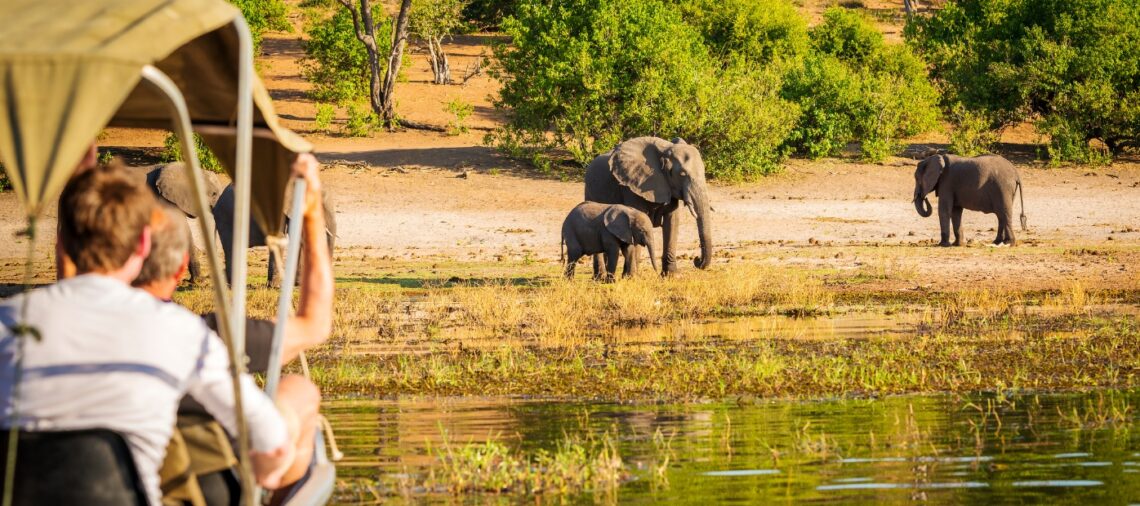Did you know that every year, thousands of safari tourists unknowingly make mistakes that detract from their own experience and disrupt the natural behaviors of wildlife?
When embarking on a safari adventure, you must clearly understand what not to do to ensure a safe, respectful, and enjoyable encounter with nature’s magnificent creatures. By avoiding common safari mistakes, you can contribute to conservation efforts and make the most of this once-in-a-lifetime experience.
This article will provide vital safari travel tips, highlighting the actions you should avoid to protect wildlife, preserve the natural habitat, and embrace safari etiquette. From understanding safety measures to capturing safari moments on camera, we’ll guide you through the do’s and don’ts that every responsible traveler should follow. So, let’s see what not to do in a safari.
Understanding Safari Etiquette: Essential Tips for Travelers
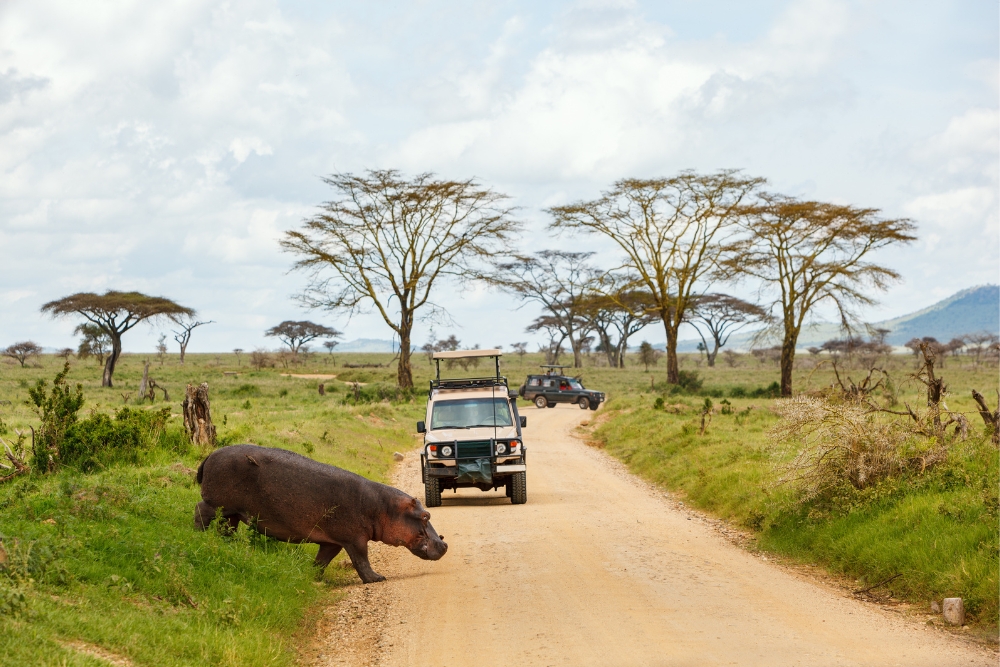
When embarking on a safari adventure, it is important to have a solid understanding of safari etiquette. Following these essential tips can ensure a respectful and enjoyable experience for yourself and the wildlife around you.
1. Keep a Safe Distance: While seeing wild animals up close and personal is undoubtedly thrilling, it is important to remember that these are wild creatures. Maintain a safe distance at all times to avoid disturbing their natural behaviors and to ensure your safety. Always listen to your guide’s instructions regarding appropriate distances.
2. Be Respectful of the Environment: Safeguarding the natural habitat is crucial for preserving wildlife. Avoid littering and disposing of waste properly. Stay on designated paths and roads to minimize damage to the ecosystem. Leave everything as you found it, allowing future generations to appreciate the wonders of nature as well.
3. Stay Quiet and Observant: When in the presence of wildlife, maintain a calm and peaceful demeanor. Avoid sudden movements, loud noises, or excessive chatter, which can startle or stress the animals. Watch and listen attentively, allowing yourself to fully immerse in the beauty of the safari experience.
4. Do Not Feed the Animals: While offering food to the animals may be tempting, this can have detrimental consequences. Feeding wildlife disrupts their natural diet, alters their behavior, and can lead to aggression. Remember that these animals can find their own food in their natural environment.
5. Respect Local Cultures: Besides respecting the wildlife, respecting the local cultures and communities you encounter during your safari is essential. Observe and follow the customs and traditions of the local people, treating them with kindness and consideration.
6. Avoid Flash Photography: Flash photography can startle and irritate wildlife, causing unnecessary distress. When taking photos, disable the flash and use natural lighting to capture the animals’ beauty and surroundings. Remember, it’s all about preserving their natural behaviors.
Common Safari Mistakes That Can Ruin Your Experience
Going on a safari is an exciting adventure, but it’s important to be aware of the common mistakes that can turn your experience into a disappointment. By avoiding these mistakes, you can ensure a memorable and enjoyable safari. Here are four safari mistakes to avoid:
1. Disregarding the Wildlife Distance Restrictions:
When encountering wild animals in their natural habitat, it’s crucial to maintain a safe distance. Approaching too closely can not only endanger your own safety but also disturb and stress the animals. Always follow the guidelines provided by your safari guide or park authorities regarding the minimum safe distance to maintain.
2. Ignoring Safety Instructions:
Safaris can involve certain risks, especially when encountering large and potentially dangerous animals. Ignoring safety instructions or not listening to your guide’s advice can put yourself and others at risk. It’s important to follow all safety protocols, such as staying in the vehicle unless instructed otherwise and avoiding sudden movements or loud noises that could startle the animals.
3. Disruptive Behavior:
Respecting the wildlife and the natural environment is crucial when on a safari. Avoid any behavior that could disturb the animals or their natural behaviors, such as shouting, littering, or touching wildlife. Remember, you are a guest in their habitat, and it’s important to act responsibly and consciously.
4. Overlooking Research and Planning:
Before embarking on a safari, it’s essential to do thorough research and plan your trip accordingly. This includes researching the best time to visit, the type of wildlife you can expect to see, and any specific regulations or requirements of the area. By overlooking these factors, you may miss out on optimal wildlife sightings or encounter unexpected challenges.
Mandatory Safari Safety Measures You Shouldn’t Ignore
When embarking on a safari adventure, it is crucial to prioritize safety to ensure a memorable and incident-free experience. By familiarizing yourself with the mandatory safari safety measures, you can protect yourself, fellow travelers, and the wildlife around you.
One of the essential safety measures is to listen carefully to your trained safari guide. They possess expert knowledge about the area, wildlife behavior, and potential dangers. Pay attention to their instructions and follow them diligently to minimize any risks.
Traveling in groups is another crucial safety measure. Always stay within the designated areas and never venture off on your own. Group travel offers safety in numbers, making spotting wildlife and preventing unexpected encounters easier.
To protect yourself from the elements, it is important to dress appropriately. Safaris can involve long hours of exposure to sunlight, so wearing lightweight, breathable clothing, a wide-brimmed hat, and sunglasses is advisable. Also, don’t forget to wear comfortable shoes that are suitable for walking on uneven terrain.
| Safari Safety Measures | Description |
|---|---|
| Always stay inside the safari vehicle | Do not attempt to get out of the vehicle unless instructed to do so by your guide. The open plains may seem inviting, but it is crucial to maintain a safe distance from wildlife for both your safety and theirs. |
| Keep noise to a minimum | Wildlife can be easily startled by loud noises. Avoid unnecessary talking, sudden movements, or playing loud music during your safari to ensure a calm and respectful environment. |
| Do not feed the animals | Feeding wildlife disrupts their natural behavior and can lead to dependency on human food, which is dangerous for both animals and visitors. Enjoy observing them in their natural habitat without interfering. |
| Respect private property and local customs | Be mindful of the rules and regulations of the safari reserve you are visiting. Respect the boundaries and customs set by the local community to maintain a harmonious relationship with the environment and the people. |
| Keep a safe distance from wildlife | Although the desire to capture the perfect photograph may be strong, it is crucial to maintain a safe distance from wildlife. Use zoom lenses or telephoto lenses to capture close-up shots without compromising your safety or disturbing the animals. |
By adhering to these mandatory safari safety measures, you can fully immerse yourself in the awe-inspiring beauty of the wilderness while ensuring a safe and respectful encounter with the wildlife that calls it home.
Avoiding Actions That Disturb Wildlife Behaviors
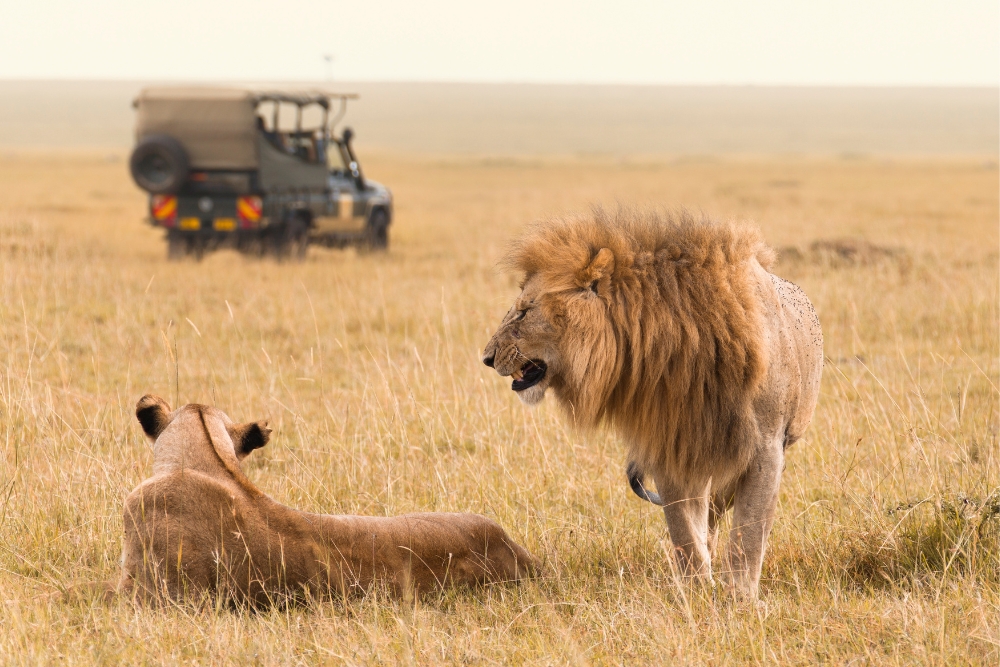
When embarking on a safari adventure, it is crucial to prioritize the protection and preservation of wildlife behaviors. By avoiding certain actions, you can contribute to the conservation efforts and create a more harmonious environment for the animals. Here are some key guidelines to follow:
- Do not approach or chase animals: Maintaining a safe distance from the animals and avoiding getting too close to them is essential. Approaching or chasing wildlife can cause stress, disrupt their natural behaviors, and even lead to dangerous situations.
- Avoid loud noises and sudden movements: Wildlife is extremely sensitive to sound and movement. Keep noise levels to a minimum and avoid making sudden, jerky movements that may startle or frighten the animals. This will allow them to feel more comfortable and behave naturally.
- Do not feed or touch the animals: Feeding or touching wildlife is not only prohibited but can also have detrimental effects on their health and behavior. Human food is not suitable for animals, and close contact may transmit diseases, disrupt social structures, or lead to dependency on humans.
- Respect their natural habitat: Stay on designated paths and roads to avoid damaging the animals’ natural habitat. Do not remove or disturb plants, rocks, or other natural elements. By leaving the environment undisturbed, you are allowing the animals to thrive in their natural surroundings.
- Observe quietly and with patience: Take the time to observe wildlife quietly and patiently. Rushing or creating unnecessary commotion can cause distress and prevent you from witnessing fascinating natural behaviors. Allow the animals to acclimate to your presence, and you will have the opportunity to see their true beauty.
- Keep your group size small: When going on a safari, it is advisable to keep your group size small. Larger groups can be overwhelming for both the animals and other safari-goers. By reducing the number of people, you minimize the disturbance and provide a more intimate experience with nature.
By following these guidelines and respecting the behaviors and habitats of wildlife, you can ensure a responsible and unforgettable safari experience. Remember, the goal is to observe and appreciate animals in their natural environment while minimizing any negative impact on their well-being.
| Actions to Avoid | Guidelines to Follow |
|---|---|
| Approaching or chasing animals | Maintain a safe distance and avoid getting too close |
| Loud noises and sudden movements | Keep noise levels low and avoid startling the animals |
| Feeding or touching the animals | Refrain from feeding or touching wildlife |
| Respecting their natural habitat | Stay on designated paths and avoid damaging the environment |
| Observing quietly and with patience | Take the time to observe wildlife quietly and patiently |
| Keeping group sizes small | Opt for smaller groups to minimize disturbance |
What Not to Do in A Safari: Protecting the Natural Habitat
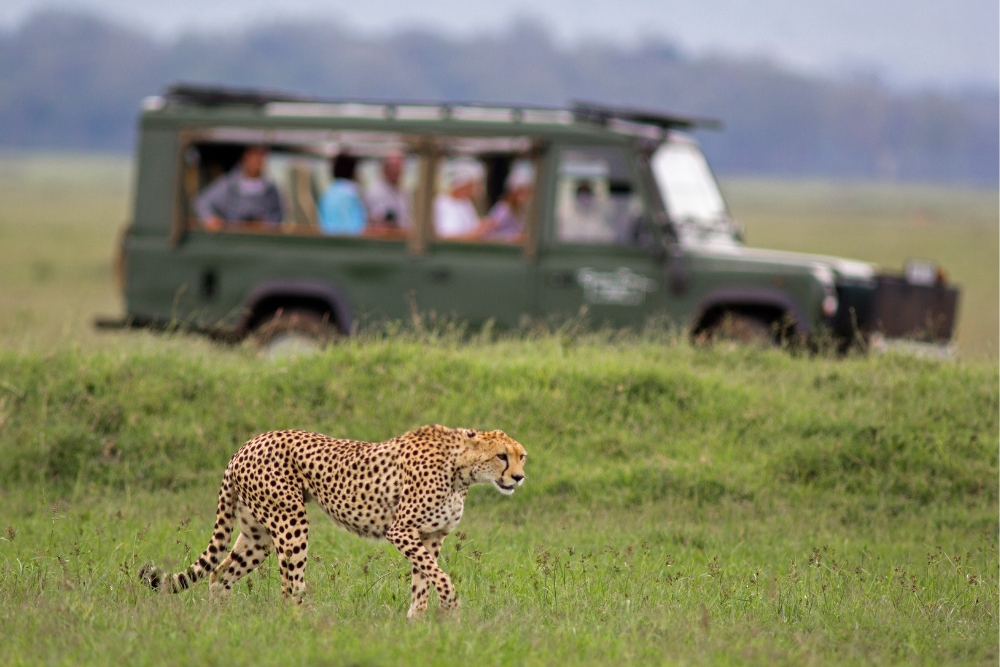
When embarking on a safari adventure, respecting and protecting the natural habitat of the wildlife you encounter is crucial. By understanding what not to do in a safari, you can minimize your environmental impact and ensure the long-term preservation of these incredible ecosystems.
One of the most critical aspects of protecting the natural habitat is to avoid littering. It is vital to carry any trash or waste back to designated areas for proper disposal. This includes not leaving behind any food items, as they can attract animals and disrupt their natural feeding patterns.
Furthermore, staying on designated paths and roads during safari drives is essential. Venturing off into unmarked areas can damage delicate vegetation and disturb the habitats of various animal species.
Another important consideration is the use of water resources responsibly. Irrational consumption of water can strain the local ecosystems and have long-term consequences. Hence, it is crucial to follow the guidelines provided by safari guides and conserve water whenever possible.
Finally, minimizing noise pollution is paramount to protecting the natural habitat. By refraining from loud noises and unnecessary disturbances, you can ensure that wildlife can flourish undisturbed. This includes avoiding unnecessary honking, loud music, or disturbing animal calls.
| Actions to Avoid | Impact on Natural Habitat |
|---|---|
| Littering | Disturbs wildlife and damages the ecosystem |
| Veering off designated paths | Destroys vegetation and habitats |
| Excessive water consumption | Strains local ecosystems |
| Noise pollution | Interferes with natural animal behaviors and communication |
By adhering to these guidelines and being conscious of your actions, you can play a significant role in preserving the natural habitat of the magnificent wildlife you can encounter on your safari journey.
The Do’s and Don’ts of Capturing Your Safari on Camera
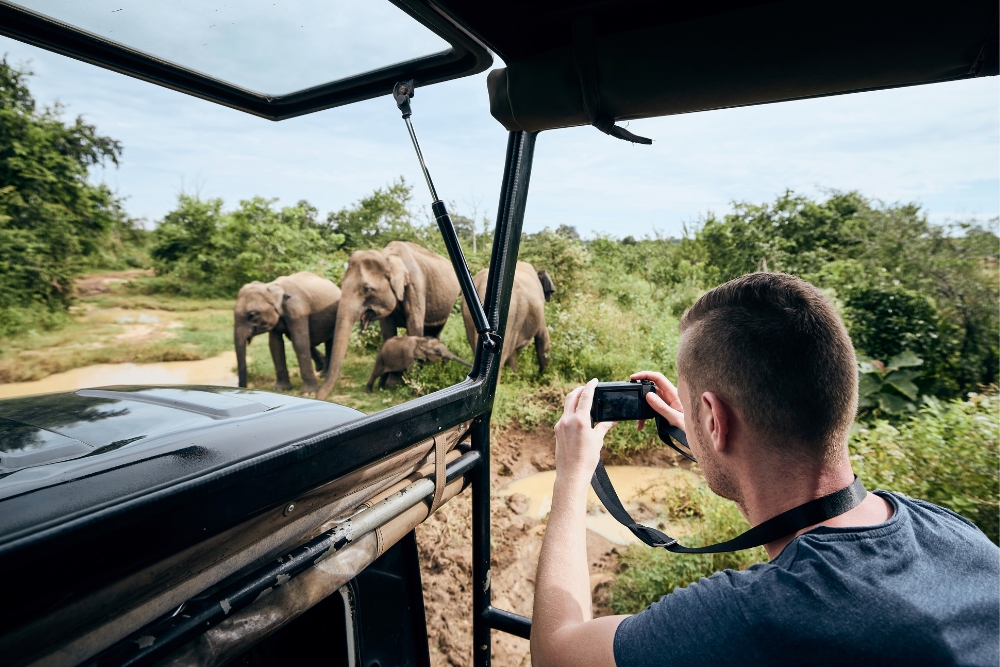
When embarking on a thrilling safari adventure, capturing those unforgettable moments on camera is necessary. However, it’s vital to approach wildlife photography responsibly and respectfully. Here are some essential do’s and don’ts to keep in mind when photographing animals in their natural habitat:
Do:
- Respect the animal’s personal space and keep a safe distance to avoid causing stress or disturbing their behaviors.
- Use a telephoto lens to get close-up shots without trespassing their comfort zone. Remember, zooming in optically is always better than physically getting too close.
- Practice patience and wait for the right moment to capture unique and authentic shots. This can include action shots, interactions between animals, or capturing their natural expressions.
- Support conservation efforts by photographing animals in a way that highlights their beauty while raising awareness about their importance in the ecosystem.
- Follow the instructions and guidance of experienced guides and rangers who understand the animals’ behaviors and can help you position yourself for the best shots.
Don’t:
- Approach animals too closely or attempt to touch them. This can endanger your safety and disrupt the animal’s natural behavior.
- Use flash photography as it can startle and distress the wildlife, especially during night safaris when animals may be more sensitive to sudden bright lights.
- Obstruct the view of other safari-goers by constantly standing or moving around to get the perfect shot. Be considerate of others and share the optimal viewing positions.
- Disturb the animals by making excessive noise or sudden movements. This may cause them to flee or become defensive, resulting in missed photo opportunities and potential harm.
- Post-process or edit the images in a way that misrepresents the reality of the animals’ appearance or behaviors. Always aim for authenticity and truthful representation.
| Do’s | Don’ts |
|---|---|
| Respect the animal’s personal space | Approach animals too closely or attempt to touch them |
| Use a telephoto lens to maintain a safe distance | Use flash photography |
| Practice patience and wait for the right moment | Obstruct the view of other safari-goers |
| Support conservation efforts | Disturb the animals with excessive noise or sudden movements |
| Follow the guidance of experienced guides | Post-process or edit images in a misleading way |
By respecting wildlife, practicing responsible photography, and following these guidelines, you can capture stunning images while ensuring the welfare and preservation of the incredible animals you encounter on your safari.
Maximizing Your Safari Experience Without Disruption
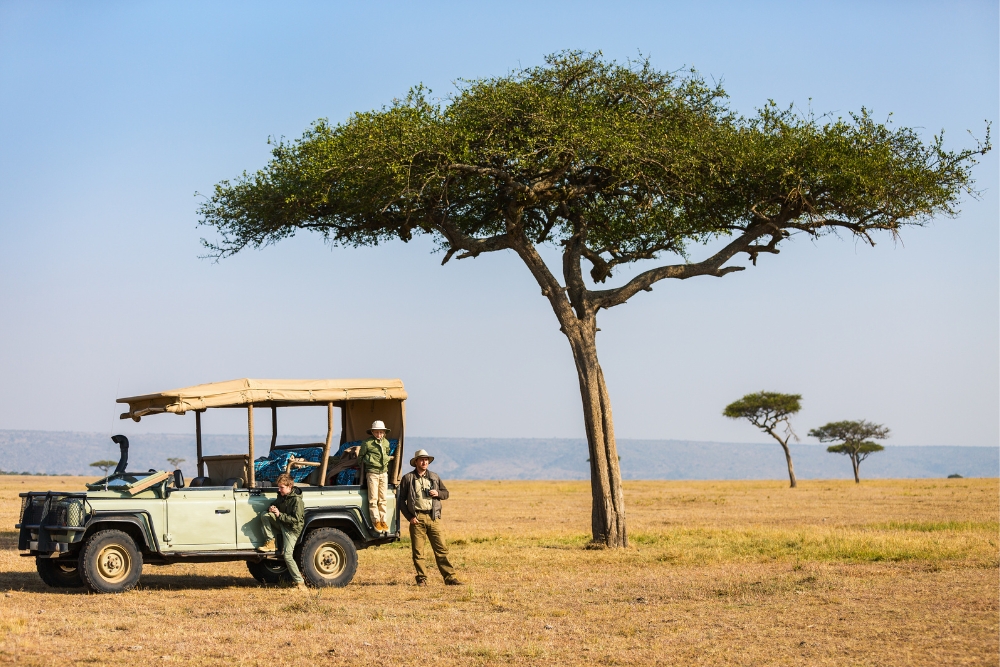
When embarking on a safari adventure, it’s crucial to be mindful of your actions to ensure a rewarding and respectful experience for both yourself and the wildlife. By following a few essential guidelines, you can maximize your safari experience without causing any disruptions. Here are some tips to help you make the most of your safari while maintaining the integrity of the natural environment:
1. Stay with your guide: Your safari guide is your expert companion who knows the area and wildlife behavior intimately. Always listen to their instructions and stay close to them during the excursion to avoid straying into restricted areas or interfering with the animals’ natural habitat.
2. Keep quiet and minimize noise: Silence is key to observing wildlife up close and maintaining their peace. Avoid loud conversations, sudden movements, and excessive noise that can startle or disturb the animals. By remaining as quiet as possible, you enhance your chances of witnessing natural behaviors in their undisturbed state.
3. Respect the animals’ personal space: Maintaining a respectful distance from the wildlife is essential. Keep in mind that the animals you encounter are wild and unpredictable. Admire them from a distance and never attempt to touch, feed, or provoke them for any reason. This respect ensures both your safety and the animals’ well-being.
4. Stay inside the vehicle: Unless instructed otherwise by your guide, it is vital to remain inside the vehicle at all times. The safari vehicle provides a safe and non-threatening environment for observing the animals. Venturing outside can be dangerous and may cause unnecessary stress or agitate the wildlife.
5. Avoid overcrowding: Be considerate of other safari-goers by maintaining a respectful distance between vehicles. When animals are spotted, it’s important to approach slowly and cautiously, allowing everyone in the area to have an unobstructed view. Rushing or crowding can create unnecessary chaos and may cause animals to retreat or become agitated.
6. Use binoculars and cameras: Binoculars and cameras are excellent tools for observing wildlife without encroaching on their space. Use them to get a closer look and capture unforgettable moments, allowing you to appreciate the animals’ beauty and behavior while maintaining a safe distance.
7. Respect the designated paths: Stick to the designated paths and trails during your safari. These paths are carefully designed to minimize disturbance and protect the delicate ecosystem. Straying from the designated routes can cause damage to the environment and disrupt the natural balance.
8. Pack essential items: To ensure a smooth and uninterrupted safari experience, consider bringing essentials such as sunscreen, bug repellent, water, and appropriate clothing. Being prepared will help you stay comfortable and focused on enjoying the remarkable wildlife moments.
9. Leave no trace: As responsible travelers, leaving the safari landscape exactly as you found it is important. Avoid littering, and dispose of any waste properly. Respect the environment, wildlife, and local communities by minimizing your impact and leaving only footprints behind.
Navigating Safari Social Norms: Respecting Guides and Fellow Guests
Respecting the safari guides and your fellow guests is essential to a successful and enjoyable safari experience. By adhering to social norms and etiquette, you not only create a harmonious environment but also foster a sense of respect and appreciation for the wildlife and natural surroundings you’re privileged to encounter. Here are some key guidelines to help you navigate safari social norms:
1. Follow the guide’s instructions: Safari guides are highly knowledgeable about the wildlife, habitats, and safety protocols. It’s important to listen to their instructions and follow them accordingly. They deeply understand the animals’ behaviors and can provide valuable insights that enhance your overall experience.
2. Maintain silence and minimize disturbance: While on safari, it’s crucial to maintain silence and minimize any unnecessary noise or disturbance. This helps to create a peaceful atmosphere that allows wildlife to behave naturally and minimizes stress or anxiety for the animals and their habitats.
3. Avoid interfering with wildlife sightings: It’s important to respect the natural course of wildlife sightings and avoid interrupting or altering their behavior. Do not attempt to get too close or approach the animals without the guidance of your safari guide. Always prioritize the safety and well-being of the animals.
4. Be considerate of other guests: Remember that you are sharing the safari experience with other guests who have come to enjoy and appreciate the wildlife. Be mindful of others by keeping noise levels down and avoiding any actions that may obstruct their views or disrupt their experience.
5. Practice responsible photography: When capturing safari moments on camera, be considerate of the wildlife and fellow guests. Avoid using flash photography, excessive noise, or invasive equipment that may startle or disturb the animals. Always prioritize the welfare of the animals over getting the perfect shot.
6. Respect the environment: Leave no trace behind by adhering to responsible environmental practices. Avoid littering or damaging the natural habitat and follow any specific instructions provided by your guide regarding waste disposal.
7. Engage in meaningful and respectful interactions: Take the opportunity to engage with your guide and fellow guests in a respectful and inclusive manner. Ask questions, share knowledge, and foster a sense of camaraderie that enhances the overall safari experience for everyone.
| Respecting Guides and Fellow Guests | Safari Social Norms |
|---|---|
| Follow the guide’s instructions | Listen to the knowledgeable guides and abide by their instructions for a safe and educational experience. |
| Maintain silence and minimize disturbance | Create a peaceful environment that minimizes stress and allows wildlife to behave naturally. |
| Avoid interfering with wildlife sightings | Respect the natural course of wildlife sightings and avoid disturbing or altering their behaviors. |
| Be considerate of other guests | Mindful of fellow guests by keeping noise levels down and respecting their experience. |
| Practice responsible photography | Capture wildlife moments while prioritizing the welfare of the animals and not disturbing others. |
| Respect the environment | Adhere to responsible environmental practices and leave no trace behind. |
| Engage in meaningful and respectful interactions | Foster a sense of camaraderie by engaging in respectful and inclusive interactions with guides and guests. |
Safari Rules Every Responsible Traveler Should Follow
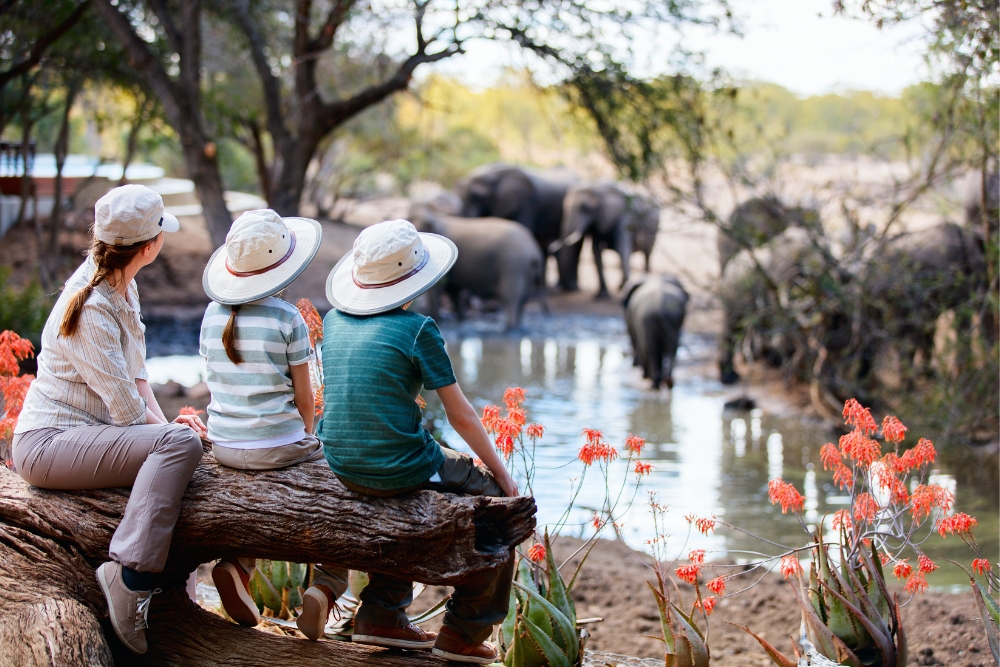
When embarking on a safari adventure, it is vital to adhere to certain rules to ensure the well-being of the wildlife, preserve the natural habitat, and promote responsible travel. By following these safari rules, you can contribute to the conservation efforts and have a more meaningful and sustainable experience.
1. Respect the animals: Maintain a safe distance from wildlife and avoid disturbing their natural behavior. Do not feed or approach animals, as it can be dangerous for you and the animal.
2. Stay on designated paths: Stick to the approved trails and roads to minimize your impact on the environment. Straying off the path can disrupt fragile ecosystems and harm the flora and fauna.
3. Preserve the environment: Do not litter and carry out any waste you generate during your safari. Dispose of trash responsibly and support initiatives that promote eco-friendly practices.
4. Follow instructions from guides and rangers: Listen carefully to the instructions provided by your safari guides and park rangers. They are knowledgeable experts who prioritize your safety and the well-being of the wildlife.
5. Remain inside your vehicle: Unless instructed otherwise by your guide or in specific circumstances, such as a designated viewing area, stay inside your vehicle at all times. It provides a safe barrier between you and the animals.
6. Minimize noise and disturbance: Keep conversations and noise levels to a minimum during wildlife encounters. Sudden loud noises can startle animals and negatively impact their behavior.
7. Respect the privacy of other travelers: Be mindful of other tourists’ experiences by maintaining a respectful distance and refraining from obstructing their view. Allow everyone to fully enjoy the safari without unnecessary disruptions.
8. Do not collect souvenirs: Avoid picking up or removing natural elements such as rocks, plants, or animal remains from the safari area. They contribute to the ecosystem and should be left undisturbed.
9. Be mindful of photography ethics: When taking photographs, prioritize the well-being of the wildlife over capturing the perfect shot. Do not use flash photography, use zoom lenses for close-ups, or interrupt natural behaviors for a picture.
10. Educate yourself: Before embarking on your safari, educate yourself about the local wildlife, customs, and regulations. Understanding the ecosystem and cultural context enhances your appreciation of the experience.
By following these safari rules, you can ensure a safe, respectful, and sustainable adventure while supporting conservation efforts. Let’s cherish the magnificence of wildlife while positively impacting our planet.
Conclusion
In conclusion, when embarking on a safari adventure, it is crucial to be mindful of the actions and behaviors that can negatively impact your experience and the wildlife. Following the essential tips and guidelines outlined in this article can ensure a safe, respectful, and memorable safari journey.
Understanding safari etiquette is vital for travelers. By being considerate of the wildlife, fellow guests, and guides, you can create a harmonious environment that maximizes everyone’s enjoyment. Respecting social norms, such as giving animals space and adhering to the instructions of knowledgeable guides, allows for an immersive and authentic experience.
Avoiding common safari mistakes is equally important. By refraining from actions that disrupt wildlife behaviors, like approaching too closely or making excessive noise, you can preserve their natural habitat and contribute to conservation efforts. Adhering to mandatory safety measures, such as staying in designated areas and following animal encounter protocols, ensures both your safety and the well-being of the animals.
Lastly, capturing your safari moments on camera adds to the joy of the experience. However, it is crucial to do so responsibly. Following the do’s and don’ts of photographing wildlife, like using a zoom lens instead of approaching closely, allows you to capture incredible shots without causing any harm or disturbance.
By understanding and implementing these guidelines, you can be a responsible traveler and contribute to preserving these extraordinary environments for generations to come. So, pack your bags, embrace the adventure, and embark on a safari journey that is safe, respectful, and awe-inspiring!
Photos: Canva Pro

